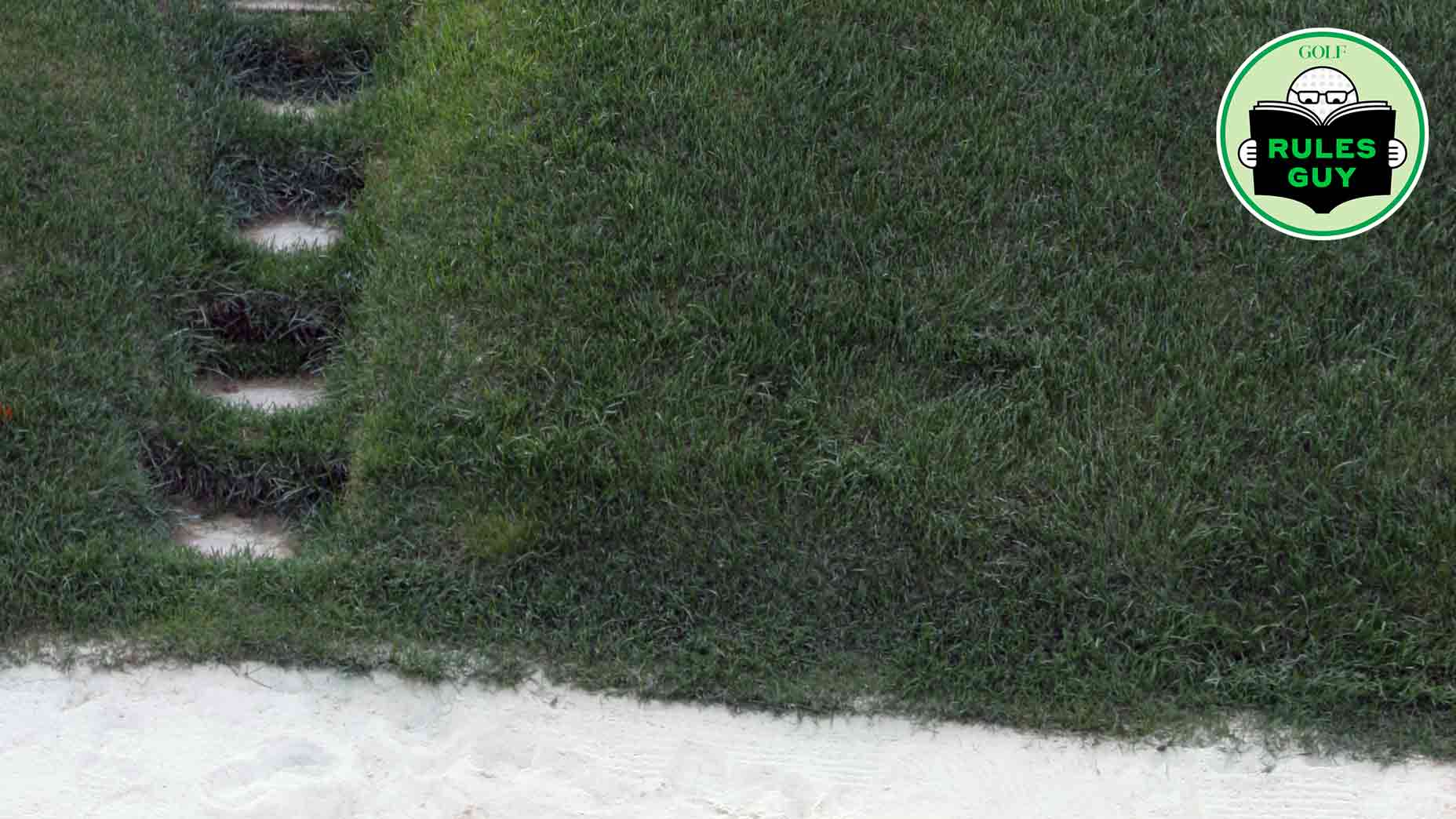
What do the rules say about taking relief from stairs in a bunker?
Getty Images
The Rules of Golf are tricky! Thankfully, we’ve got the guru. Our Rules Guy knows the book front to back. Got a question? He’s got all the answers.
A local course designer here on Vancouver Island wanted to be the next Pete Dye — he built a large bunker with steep railroad ties in the face, and two separate staircases to get in and out built into the ties. Naturally, my ball came to rest on one of the stairs’ steps, which were so steep that no shot could possibly be played. As it was a tournament, there was a rules guy present, who said I got free relief outside the bunker, treating the ties and stairs as if I had embedded in a grass face. Was this correct? —Mike Marshall, Nanoose Bay, BC, Canada
Was this rules guy calling himself “Rules Guy”? If so, our lawyers would like to have a word with him …
Regardless, he didn’t adjudicate the matter as if the ball were embedded; he treated the railroad ties and stairs as what they are, namely, immovable obstructions.
The Committee must determine whether such obstructions are inside the bunker or out, and in this case it sounds as if they were considered the ladder, er, latter. (A ball on top of an IO where sand normally would be, would be treated as in the bunker, but this is not really the case for stairs or railroad ties on the wall.)
Ergo, you got free relief under Rule 16.1b for being in the general area since the ball was not technically in the bunker, the ins and outs of which one can learn more by reading Rule 12.1.
For more obstruction guidance from our guru, read on …
In a tournament, I found myself in the left trees on a par 5. In my line of play (though not impacting my swing) was a metal plaque the size of loose-leaf paper on an immovable four-foot-tall post. My opponent allowed me a drop to the nearest point no closer to the hole that would take the plaque out of my line of play and sight … but he added that I needed to hit the same shot I’d planned prior to the drop. I thought after getting relief I could choose whatever shot I wanted, even if, due to a better window, it meant a full 3-wood instead of a punch-out. Who was correct? Or were we both wrong? —Drew Haley, Bethesda, Md.
If your opponent told you to take a free drop off the Brooklyn Bridge …. You were indeed both wrong, because you weren’t entitled to free relief, as the immovable obstruction interfered only with your line of sight, not your swing, lie or stance.
The question becomes whether this was match play or stroke play (in which case you meant “fellow competitor,” not “opponent”).
In match play, you’re off the hook because, per Rule 20.1(b)1, if a player and opponent agree to a procedure, correct or incorrect, it stands, as long as they’re not knowingly waiving a Rule. In stroke play, you breached Rule 9.4 and get the penalty of two strokes for playing from the wrong place.
Oh, and if a competitor ever tries to tell you what kind of shot to play, tell him to jump off the Brooklyn Bridge.
Need help unriddling the greens at your home course? Pick up a custom Green Book from 8 AM Golf affiliate Golf Logix.
Got a question about the Rules? Ask the Rules Guy! Send your queries, confusions and comments to rulesguy@golf.com. We promise he won’t throw the book at you.









